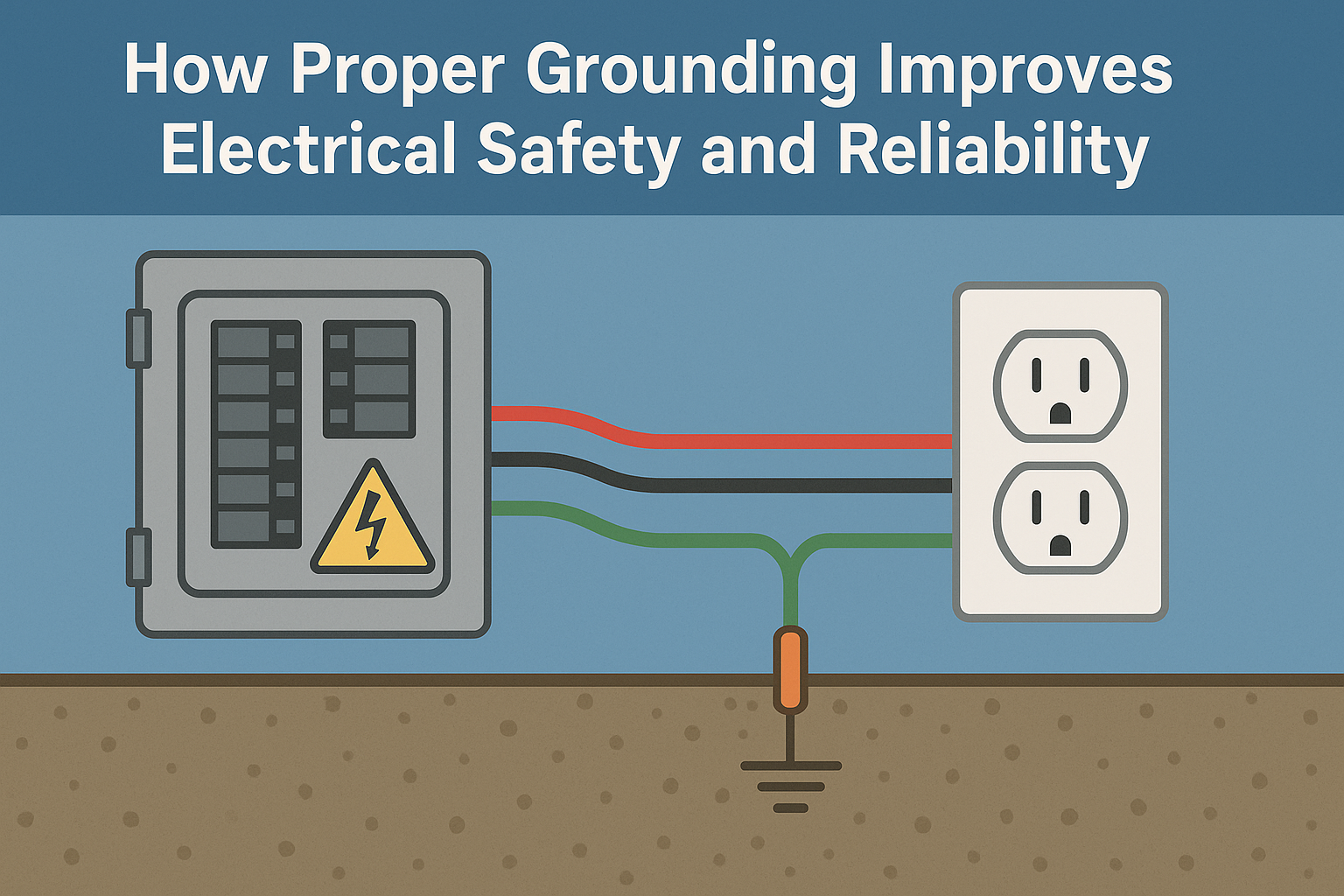⚡ What is Grounding?
Grounding (or earthing) refers to the practice of connecting parts of an electrical system to the Earth or to a common reference point (ground). This can include:
Connecting the neutral point of a power system to ground
Grounding non-current-carrying metal parts of equipment
Establishing a low-resistance path for fault currents
🔐 How Grounding Improves Electrical Safety
- Prevents Electric Shock Hazards
When a fault (like insulation failure) causes live wires to touch metal parts, proper grounding ensures that the metal becomes safely de-energized.
It provides a low-impedance path for fault current to flow back to the source, which typically causes the circuit breaker or fuse to trip quickly, cutting off power before injury or fire occurs.
- Stabilizes Voltage During Faults
In the event of lightning or power surges, grounding helps to absorb and safely dissipate excess energy into the Earth.
This reduces the risk of high voltages appearing on the system and minimizes damage to connected equipment.
- Protects Against Fire
Fault currents that are not properly grounded may flow through unintended paths (e.g., wood structures, water pipes), heating materials and causing fire.
Grounding routes fault current safely to earth, preventing overheating of other conductors.

⚙️ How Grounding Improves System Reliability
- Ensures Proper Operation of Protective Devices
Circuit breakers, GFCIs, and fuses rely on a sudden spike in current to detect faults.
Proper grounding ensures a clear and reliable fault path, allowing these devices to trip correctly and prevent damage or extended outages.
- Reduces Equipment Damage
Grounding helps in dissipating transient voltages (e.g., from lightning or switching surges), reducing stress on sensitive electronic components and improving lifespan.
- Minimizes Electromagnetic Interference (EMI)
In industrial or IT environments, grounding can reduce electrical noise and EMI, improving the performance and stability of communication and control systems.
- Improves Power Quality
Grounding helps maintain voltage levels within specified ranges and prevents unbalanced voltages, which can otherwise damage motors and other loads.





